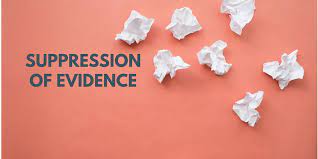
If you find yourself under arrest and awaiting trial on a criminal charge, it is essential that you retain skilled legal counsel to represent you in your case right away. In some instances, certain pieces of prosecution evidence are subject to suppression. If a court suppresses the evidence, your criminal charge may be dismissed.
The experienced attorneys at Cohen Law Offices can meet with you to discuss the circumstances surrounding your arrest, along with any potential defenses available to you in your case. We will work hard to help you attain the best possible result in your criminal matter.
To learn more about how we can assist with defending you against your pending charge, please call Cohen Law Offices today at (715) 514-5051 or contact us online.
Legal Burden of Proof
In any criminal case, the prosecutor has the legal burden of proof, meaning that you, as the defendant, do not need to prove anything in your case. The prosecutor, however, must establish their legal burden beyond a reasonable doubt or beyond a doubt that is based upon ordinary reason and common sense. If the prosecutor fails to prove even one element of your claim, the case might get dismissed.
One way that a defense lawyer can poke holes in the prosecution’s case is by moving to suppress certain evidence. In some instances, the evidence might have been obtained in violation of an accused’s constitutional rights, while at other times, a procedural defect may have occurred.
Suppressing the Prosecution’s Evidence in Your Criminal Case
In several instances, a judge can suppress various pieces of evidence in a criminal case. When that happens, the prosecutor might be unable to satisfy their legal burden, resulting in a complete dismissal of your charge. The most common instances when evidence is subject to suppression include:
· Fourth Amendment violations – Certain evidence in a criminal case may be subject to suppression if it violates a suspect’s Fourth Amendment rights. The Fourth Amendment to the United States Constitution prohibits unreasonable searches and seizures. If a police officer performs a search of a person without the necessary probable cause, or if evidence is obtained from a location without a search warrant — or a search warrant exception — the evidence that is recovered might be subject to suppression.
· Violating Miranda – According to Miranda v. Arizona, during an arrest, a suspect must be advised that they have the right to remain silent, that anything they say can be used against them in court, that they have a right to the presence of legal counsel during questioning, and that if they cannot afford a lawyer, one will be made available to them. If a criminal suspect asserts their right to the presence of counsel, yet a police officer or investigator insists on questioning them, anything that the accused says in response may be suppressed. The same holds true if the police officer did not Mirandize the suspect at all prior to questioning.
If any evidence in your case is subject to suppression, we will discuss the options you have regarding a Motion to Suppress.
Talk with a Knowledgeable Criminal Defense Attorney About Your Pending Case Today
If you are currently pending a criminal charge, our legal team is ready to assist you right away. For a free case evaluation and consultation with an experienced criminal defense attorney, please call Cohen Law Offices today at (715) 514-5051 or contact us online.

